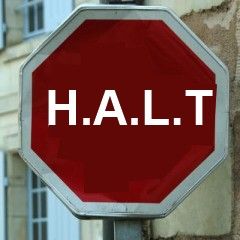IMPORTANT NEWS:
To hear shows weekly, as usual, help me buy more hosting space. (AND I’m hoping to go to two shows per week, once financial support rolls in! YAY!)
A little $1 – $10 lovin’ from you, and each listener, will make it possible.
If you’d like to help click HERE. Thank you!
AND Thanks for supporting the project of Spark My Muse through listening, reading the show notes, reviewing the show in iTunes, and sharing it with friends, too! You are awesome.
xo
~Lisa
NEW!
Join in for weekly LIVE interactive discussions each Tuesday about that week’s podcast topic! VIEW UPCOMING topics and subscribe to join in HERE.
INTRO TO THE EPS 26:
Melissa Wilson didn’t just survive mistreatment as a child, she worked to heal from it, redeem it, and establish a platform to help sufferers and advocate for those who are suffering now or wounded from the past.
Melissa converses with me about how she found healing and the joy of transforming her pain into a thriving website and podcast that shares stories of victory, triumph, and overcoming great odds.
Don’t let your past define you. Here are some ways you can move forward and even find a valuable mission in life.
Podcast: Play in new window | Download (62.7MB) | Embed
Subscribe to Spark My Muse Apple Podcasts | Spotify | Email | TuneIn | RSS | Subscribe to Spark My Muse

SHOWNOTES with links
(These are approximate times in this audio broadcast.)
MIN 1:30
The Grass Gets Greener is Melissa’s project that has and continues to redeem and heal her past.
How did she begin to sense this path of helping and advocating for others?
2:00
Getting therapy and then being able to think about helping others.
10:00
How forgiveness played a huge part in the process of getting to a point of thriving and peace.
“If someone’s hurt us we forgiven for ourselves and not for the person who caused the pain.
13:20
The aspect of the continual forgiveness process.
15:00
Every story of surviving is important.
17:00
What helped her most in the process of healing and the first barrier that stood in her way was stigma.
18:00
The crisis event that sparked clarity to get therapy to heal.
20:00
How talking it out helped her and gave her confidence, and she even spent some time traveling in Europe alone.
22:00
How she developed social anxiety problems and then came to overcome them.
23:00
Post-Traumatic Stress symptoms and high adrenaline responses.
23:30
Finding a safe place and an outside perspective to find space from the trauma and grow in self-awareness.
25:00
The impact on relationships, trust, and bonding.
28:00
Rebounding and developing good friendship and meeting her now-husband as she got well.
31:00
On deciding what to make public.
33:00
Becoming who you really are and meeting new people at that point.
33:30
We attract people who are healthier because we are healthier.
34:00
“You have to connect with people who aren’t going to try to hurt you and who are going support you.”
35:30
Creating a family of choice, the core people who will help you be most well.
36:00
Connecting unawares with people who remind you of old pain.
36:30
You are most vulnerable on the road to recovery.
37:20
Feed your mind with the right stuff that’s going to inspire and motivate you and shift your mindset and body.
Here are resources that helped Melissa.





